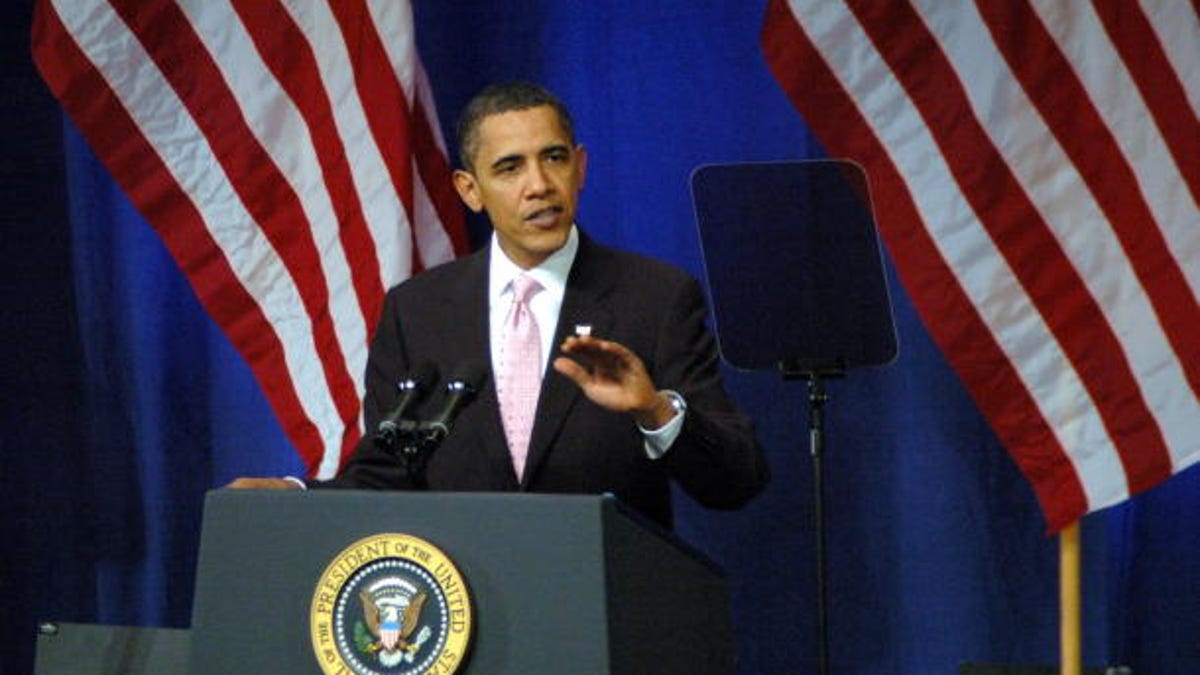Obama: NSA spying doesn't mean 'abandoning freedom'
In an interview with Charlie Rose, the president maintains that the top-secret NSA spying programs were within the bounds of the law and were intended to protect U.S. citizens.

News about the National Security Agency's classified surveillance programs has been abundant the past few days, and to top it off, President Obama is now giving a 45-minute interview about the issue with Charlie Rose on Monday evening.
Buzzfeed published a partial transcript of the interview before tonight's airing of the show. While Obama goes over the topics of the two NSA spying programs with more detail, it appears he's reiterating much of the same when it comes to the White House's stance on the programs and document leaks. Essentially, it did nothing wrong.
"What I've said, and I continue to believe, is that we don't have to sacrifice our freedom in order to achieve security. That's a false choice. That doesn't mean that there are not tradeoffs involved in any given program, in any given action that we take," Obama told Rose. "To say there's a tradeoff doesn't mean somehow that we've abandoned freedom."
The NSA is one of the biggest surveillance and eavesdropping agencies in the U.S. and was where former CIA employee and whistleblower Edward Snowden was working when he decided to leak some of the agency's top-secret documents to the press a couple of weeks ago.
This document leak has led to the public finding out that the government has been working to spy on people via metadata from Internet companies and cellular records in two programs -- 2015 Program and PRISM. The NSA and the Obama administration have said the goal of the surveillance programs were to track down foreign terrorists and terrorist threats.
"The way I view it, my job is both to protect the American people and to protect the American way of life, which includes our privacy," Obama said. "And so every program that we engage in, what I've said is 'Let's examine and make sure that we're making the right tradeoffs.'"
The White House has maintained that the secret surveillance programs were legal. In the case of the 2015 Program, which looks at phone records, Obama said that the phone numbers aren't connected to any names or database content -- they're simply "number pairs." And, in the case of PRISM, he said that the program mainly targets foreign nationals and only goes after U.S. citizens when officials have a warrant.
"What I can say unequivocally is that if you are a U.S. person, the NSA cannot listen to your telephone calls, and the NSA cannot target your e-mails... and have not. They cannot and have not, by law and by rule, and unless they -- and usually it wouldn't be 'they,' it'd be the FBI -- go to a court, and obtain a warrant, and seek probable cause," Obama told Rose. "So point number one, if you're a U.S. person, then NSA is not listening to your phone calls and it's not targeting your emails unless it's getting an individualized court order. That's the existing rule."
Rose asked Obama whether the system should be more transparent and the president maintained it is since his administration, a federal court (FISA), and Congress oversee the program. Obama said what the NSA is doing is different than former President George W. Bush and former Vice President Dick Cheney's wiretapping program.
"Some people say, 'Well, you know, Obama was this raving liberal before. Now he's, you know, Dick Cheney,'" Obama told Rose. "My concern has always been not that we shouldn't do intelligence gathering to prevent terrorism, but rather are we setting up a system of checks and balances?"
Obama defended the NSA surveillance programs two weeks ago with many of the same arguments. But since then, many politicians and tech leaders have come out opposing the secret program, while digital rights advocacy groups have questioned the full legality of PRISM and 2015.
The whistleblower Snowden has recently taken his accusations against the U.S. government a step further. In an interview with the Guardian on Monday, he said that even though a warrant is required for surveillance on U.S. citizens, the NSA is looking at information from domestic phone calls without warrants.
"Americans' communications are collected and viewed on a daily basis on the certification of an analyst rather than a warrant," Snowden said. Intelligence analysts at the NSA, CIA, FBI, the Defense Intelligence Agency, and other similar arms of the government who have access to raw data can "enter and get results for anything they want," he said.
Obama's full interview with Charlie Rose airs Monday evening on PBS.

